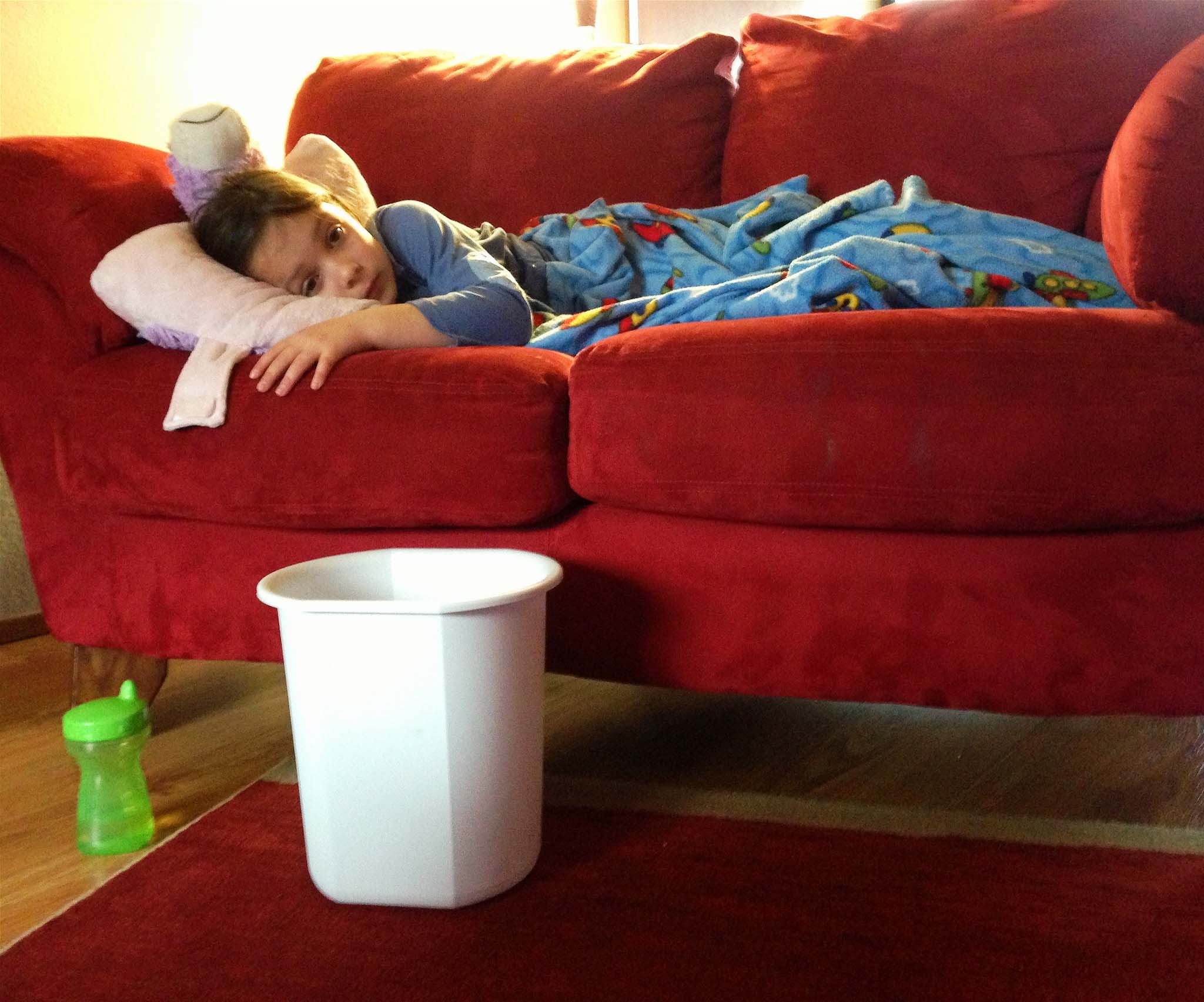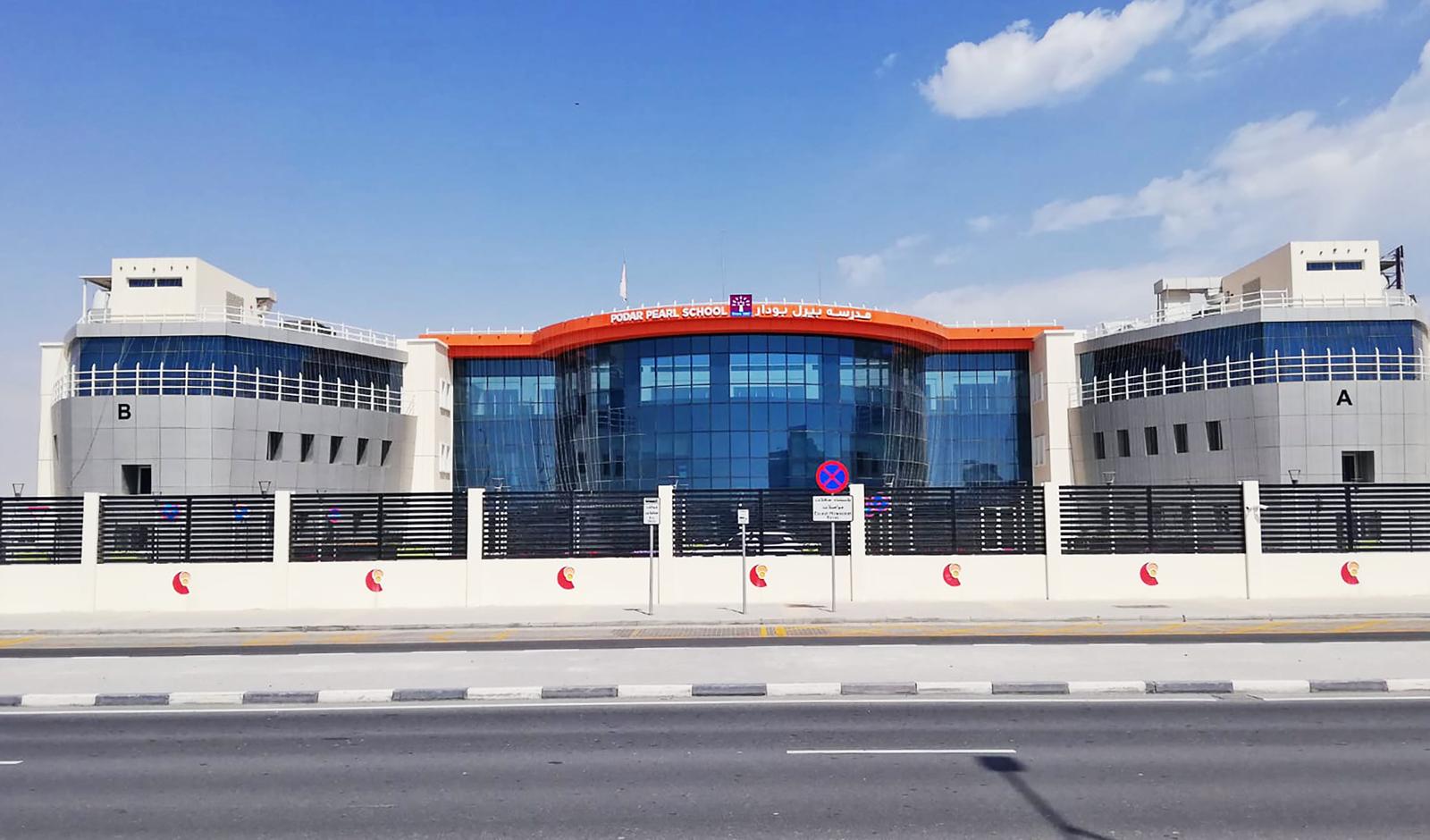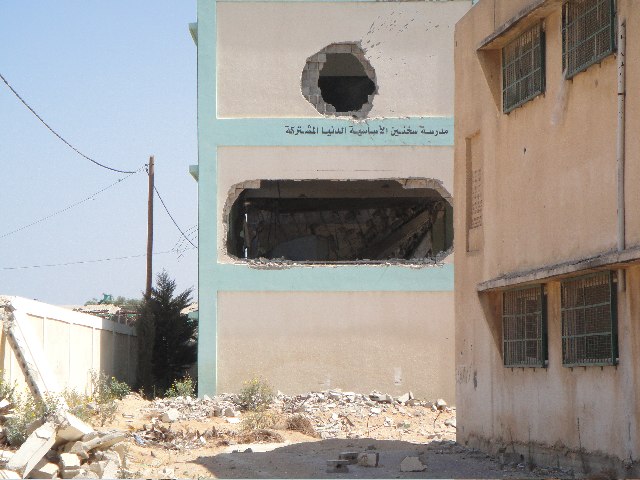
At least five more cases of the H1N1 flu virus have been confirmed in students attending four different schools, kindergartens and nurseries in Qatar this month.
The latest cases have affected Doha British School (DBS), DPS Modern Indian School, the kindergarten at the German International School and Giggles Nursery, officials there confirmed to Doha News.
Following advice from Qatar’s Supreme Council of Health (SCH), most of these establishments remain open, but said they have undertaken appropriate cleaning measures.
The SCH hasn’t publicly commented on the new cases. But earlier this week, following reports that three sisters in an independent school had been diagnosed with H1N1, officials said the number of flu cases remained in line with seasonal averages and that there was no “emergency epidemic.”
Schools and nurseries with confirmed cases have written to parents, informing them of the situation and reminding them that children showing typical flu-like symptoms should not attend school.

H1N1 is a contagious influenza virus that spreads from person to person through coughing, sneezing or talking to people.
Known colloquially as “swine flu,” it is a strain of the human Influenza A virus and is considered by the World Health Organization (WHO) as regular, seasonal flu.
Last week, the SCH confirmed the three cases as the independent school, saying the students were all from the same family but in different years at Omama bint Hamzah Independent Primary School for Girls, which is in Bani Hajer in Al Rayyan.
The school took its own decision to close for a day to undertake a deep clean. However, in a statement, the SCH cautioned against panic, saying:
“In such a situation, it is not recommended to close the school because the type of flu virus, as defined by the World Health Organization, is seasonal. It should be sufficient to isolate those infected until their symptoms subside, clean surfaces with household disinfectant and vaccinate.”
New cases
Terry McGuire, Principal of Doha British School in Ain Khaled, confirmed that one “young child” in the school has tested positively for H1N1 and that he wrote to parents yesterday (Nov. 18) to advise them.
The school has been disinfected but remains open and the SCH informed, McGuire added.

DPS Modern Indian School in Al Wakrah has had two confirmed cases of the flu virus among its student body.
In a letter sent to parents earlier this week, Principal Asna Nafees said the school has undertaken “special precautionary measures” such as disinfecting all floors, walls and other surfaces and has advised its staff to be “extra vigilant in order to identify any flu symptoms” in students.
Parents have been told to give children face masks to cover their mouths and noses. The school said kids should wear these throughout their school day as well as in other public places. They have also been asked to make sure students get the flu vaccine.
“Please do not send your ward to school if you notice any symptoms such as fever, cough, sore throat, body ache, headache, chills, fatigue, vomiting and diarrhoea. Instead, please seek advice from health service providers,” the memo continued.
When contacted by Doha News, the school declined to comment.
Meanwhile, the kindergarten at the German International School in Al Maamoura has been closed for a week after at least one case of H1N1 was confirmed, a school representative told Doha News.
The kindergarten shut on Sunday (Nov. 14) and will remain closed for the rest of this week “as a precaution,” as at least a dozen other children and staff members have fallen sick but their cases remain unconfirmed.
“We have hired a professional company to deep-clean the kindergarten and we have cleaned the rest of the school over the weekend. This was a precaution, as we have not had any confirmed flu cases in the main school and it remains open,” the representative added.
Meanwhile, a child attending Giggles Nursery in Al Gharafa has also tested positive for H1N1 and remains at home recovering, director Petya Kines told Doha News.
The nursery is open, and staff are taking precautions including regularly checking the children’s temperatures each morning.
“If there are any symptoms, they are sent home immediately and are not allowed to return without a doctor’s note,” Kines added.

Schools across Qatar have been writing to parents to advise them to watch out for signs and symptoms of flu and to keep students home if the become unwell.
Children are also being educated in schools about basic hygiene procedures like hand washing and being particularly careful when sneezing and coughing.
Rakesh Singh, Principal of Doha Modern Indian School in Abu Hamour said students there were also being taught about the virus in science classes.
Health council advice
There are three types of seasonal flu virus – A, B and C – and H1N1 is one of two strains of influenza A that are currently circulating among humans, WHO says.
Although H1N1 caused some panic when first identified in 2009 because some people died after coming down with it, this type of flu is no longer considered a pandemic by WHO, and treatment advice is now the same as for other seasonal flu strains.

H1N1 is diagnosed by a nasal swab test conducted at a health clinic. The swab can usually differentiate between the A and B strains of the flu.
If it tests positive for Influenza A, definitive diagnoses of H1N1 usually requires the sample to be sent for laboratory testing.
Officials from the SCH, Hamad Medical Corp. (HMC) and the Primary Health Care Corporation (PHCC) held a joint briefing earlier this week in a bid to reassure residents.
Dr. Mohammed bin Hamad Al Thani, director of public health at SCH, said that while there had been a recorded rise in the number of confirmed cases of seasonal Influenza A (H1N1) in October and November, it did not constitute an emergency epidemic.
Most cases were mild to moderate and most of those admitted to hospital had recovered within a few weeks, SCH said in a statement in Arabic.
Dr. Hussam Al Soub, senior consultant at HMC’s Infectious Diseases Unit, said there had been “no significant increase” in the number of seasonal flu cases recorded for this time of year.
Some 8,000 healthcare staff have already been given the flu vaccine, and he advised that other vulnerable groups also get the vaccine.
These are:
- Children aged 6 months to 5 years;
- Pregnant women;
- Those over 65 years; and
- Residents with a weakened immune system or other chronic health issues such as diabetes or heart disease.
The flu season in Qatar starts in October and can run until the end of February. Earlier this month, the government launched a new campaign to encourage residents, particularly those with vulnerable immune systems, to get the flu vaccine.

It is available in private and public clinics across the country and you can find out more about what it is and where to get it in our quick primer here.
Dr. Hamad Eid Al Rumaihi, the Supreme Council of Health’s (SCH) director of health protection and combating infectious disease, said it monitors flu activity daily including the number of new cases and those who have had follow-up treatment in hospital.
HMC’s national influenza center records the total number of people infected with the virus and the type of virus.
Qatar is one of a number of states coordinating with the WHO to share epidemiological data and test results to strengthen its ability to monitor the extent of the spread of the viruses and to predict any change in the genetic strains that may constitute the beginning of outbreaks at a national or global level, Al Rumaihi said
And he added that HMC, PHCC, the health Council and the SEC are collaborating to monitor the situation and advise schools and other establishments accordingly.
Have you gotten a flu shot? Thoughts?







